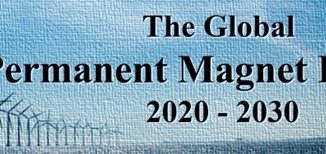A Column by Dr. Stan Trout
We live in a world with lots of numbers. For some of us, numbers can be clarifying and comforting, while for others they can be confusing. During my days as a college professor, one of my math-impaired students swore that numbers “just danced around the page” whenever she tried to make sense of them. I didn’t doubt her observation and I’m guessing that was an uncomfortable feeling. But I wanted to focus on two broad types of numbers, those that we control and those that we don’t control. I will try not to make them dance.
The title of this article is taken from the last line of The Serenity Prayer, written by Reinhold Neibuhr [1] because it is something we all need. As the Wikipedia article says, there are several versions of the prayer, but a popular one is:
God, grant me the serenity to accept the things I cannot change.
Courage to change the things I can change.
And wisdom to know the difference.
Occasionally I have used this last phrase as a title for a slide; some of you may have seen it in one of my presentations. In that context, it is my way of trying to explain a common concept in Materials Science, the difference between intrinsic and extrinsic properties. It is an attempt to divide material properties into two distinct groups.
Just in case you are wondering, intrinsic properties are the ones we cannot change; they are usually locked-in once we select a composition. For materials, things like melting point, Curie temperature or saturation magnetization fit into this category. On the other hand, extrinsic properties are the ones we can control, or at least try to control, most often through how we process the material. In magnetism this category would include things like coercivity, loop squareness and energy product. In other areas, properties like tensile strength or hardness are extrinsic. While we rarely have total control over extrinsic parameters, we have some. One of our challenges as engineers is to learn how much control we actually have over these properties. An easy way to make the distinction is to say that intrinsic properties are typically reported in a reference source, like a textbook or the Handbook of Chemistry and Physics because they are essentially fixed and not likely to change. Extrinsic properties are usually reported in test results or even in a newspaper or website because they vary with time.
If we examine how this concept is used in the arena of rare earth prices, we find some perplexing behavior.
For example, in May I attended the Intermag Conference in Vancouver. I saw many posters and listened to many presentations. Those that were devoted to a rare earth related topic invariably began with a slide that showed what happened to rare earth prices, and they all tried to say the same thing. In many different ways, they showed the prices of rare earths increasing, as we all know they did through the Summer of 2011. Ironically, none of them showed the decline of rare earth prices that followed the peak. The charts universally stopped abruptly exactly at the peak prices, even though more recent data showing lower prices has been available for some time. I don’t know their reasoning, but I’d guess that they conveniently omitted the most recent data because it was contrary to their main point: this research is necessary because rare earth prices are climbing.
Omitting the decline in prices does a disservice to the public because it doesn’t show the entire picture and leaves the clear impression that the increase continues unabated, as if this were some kind of inevitable trend. This is really unfortunate, because they easily could have shown the full picture, as in the second graph, and still justified their research, just in a slightly different way. I think their main point should be: this research is necessary because we live in an era of elevated and variable rare earth pricing.
If recent history has taught us anything about rare earths, it should be that their prices are not fixed numbers, nor are they constantly increasing or decreasing. They are clearly not intrinsic properties. Prices are controlled by supply and demand in the marketplace. As such, they are extrinsic values, controlled by market forces. Yet many people want to treat them as if they were somehow constrained to a specific type of behavior, i.e. constantly rising or fixed, when in truth, they are probably closer to a random walk than any other pattern.
In addition, we should have learned that it is a mistake to lump all rare earth prices together. While they often move together, individual rare earth prices don’t always move together in exactly the same way.
Last year’s Rare Earth crisis has become this year’s Dysprosium crisis, because Dy prices have remained stubbornly high, relatively speaking. Even though all rare earth prices have come down, there is still more concern over dysprosium than there is over neodymium, which is reflected in the price, again because of the dynamics of supply and demand.
Do you know which things you control and which things you don’t control? In this environment, understanding this distinction can spell the difference between success and failure.
References
[1] See http://en.wikipedia.org/wiki/Serenity_Prayer for an interesting history of the prayer
 About the Author
About the Author
Dr. Stan Trout has more than 30 years experience in the permanent magnet and rare earth industries. Dr. Trout is the Director of the Magnet Business for Molycorp Minerals, LLC. Spontaneous Materials, his consultancy, specializes in technical training on magnetics. He can be reached at strout@ieee.org.
Published in the Fall 2012 Issue



